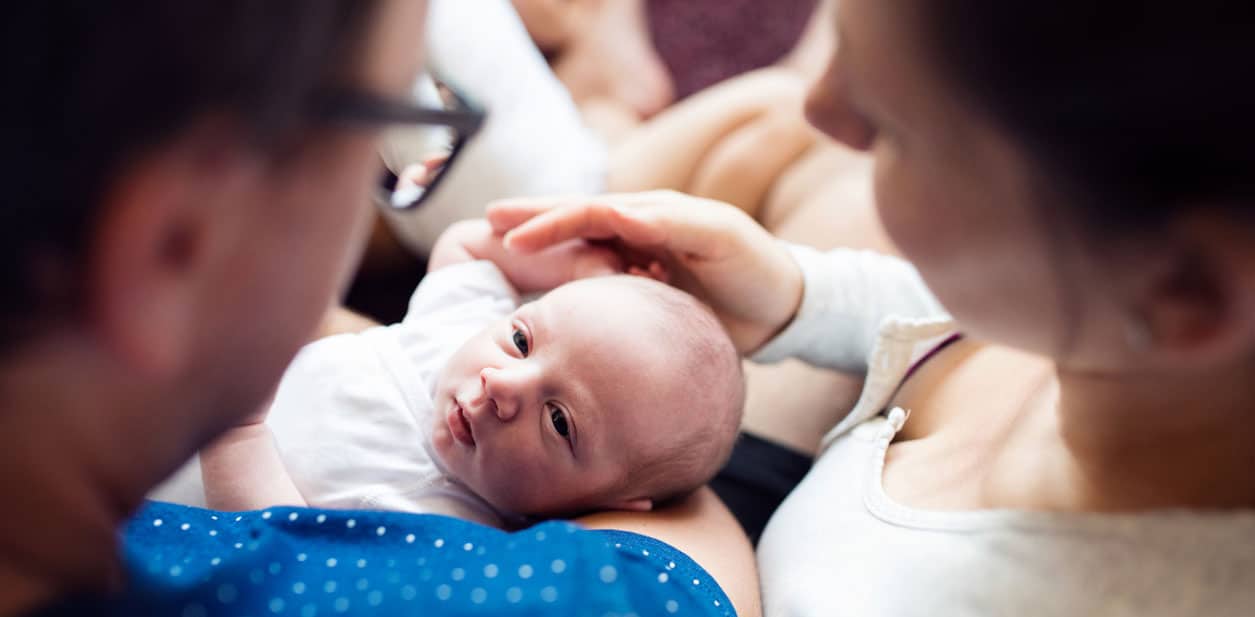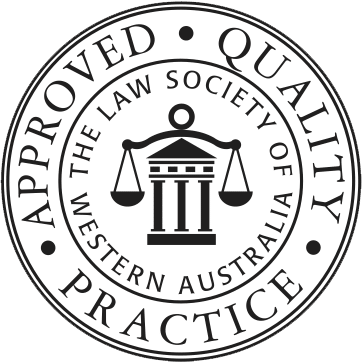Surrogacy in Western Australia
A Legal Guide
Surrogacy is a complex area of law that raises a number of considerations – legal, social and ethical. Surrogacy arrangements have, perhaps more-so in recent times, increased in popularity with people wanting to start a family via this pathway.
The practice of surrogacy has also undergone rapid change, underpinned by both advances in technology and a more liberal social approach to such matters, both in Australia and worldwide.
In this article, we share our legal knowledge on the topic so you can better understand surrogacy legislation in WA and Australia, and how these laws may apply to you.
Page Overview
On this page, we’ll discuss:
-
- What surrogacy is;
- Surrogacy laws in Perth and Western Australia;
- The approval process for surrogacy arrangements;
- Which parties are eligible to enter into a surrogacy arrangement;
- Parentage Orders and how to transfer parental rights to the intended parents;
- Legal versus illegal surrogacy arrangements in Western Australia; and
- Surrogacy arrangements overseas.
What is surrogacy?
A surrogacy arrangement occurs when a woman (the birth mother) agrees to carry a child for another person or couple (the arranged parent/s) with the intention that the child will be raised by the arranged parents, who will enjoy the full complement of parental rights.
In Australian law, a surrogacy arrangement may be defined as:
An agreement by which a woman will carry a child during gestation and upon his or her birth give over all the indicia of parenthood to another person.
Surrogacy Laws in Western Australia
Western Australia did not have specific legislation governing surrogacy arrangements until the enactment of the Surrogacy Act 2008 (WA) (“Surrogacy Act”).
Today, all surrogacy arrangements in Western Australia:
- are governed by the Surrogacy Act; and
- must initially be approved by the Western Australian Reproductive Technology Council.
The Surrogacy Act
Generally speaking, the purpose of the legislation in the Surrogacy Act is to enable the Family Court of Western Australia to transfer, from the birth parents to the arranged parents, the legal parentage of a child born under a surrogacy arrangement in certain circumstances.
A surrogacy arrangement is defined as follows:
surrogacy arrangement means an arrangement for a woman (the birth mother) to seek to become pregnant and give birth to a child and for a person or persons other than the birth mother (the arranged parent or arranged parents) to raise the child, but the term does not include an arrangement entered into after the birth mother becomes pregnant unless it is in variation of a surrogacy arrangement involving the same parties.
The Western Australian Reproductive Technology Council
All surrogacy arrangements must be approved in writing by the Western Australian Reproductive Technology Council (the Council) or its delegate. This process involves strict guidelines, a comprehensive assessment and an approval process. Eligibility criteria include, but are not limited to, the following:

Medical assessment
At least 3 months before approval is given, each of the arranged parents, the birth mother and any donor must have been assessed by a medical practitioner and confirmed, in a written report provided to the Council, to be medically suitable to be involved in the surrogacy arrangement.
Counselling and Legal Advice
At least 3 months before approval is given, each of the persons who signed the surrogacy agreement must have undertaken counselling about the implications of the surrogacy arrangement. They must also have received independent legal advice about the legal implications of the surrogacy arrangement.
Psychological assessment
All parties must have been assessed by a clinical psychologist and confirmed, in a written report provided to the Council, to be psychologically suitable to be involved in the surrogacy arrangement.
The Approval Process
The process of seeking the Council’s approval for a surrogacy arrangement is a lengthy and detailed one, and ought to be handled with care.
Upon completion of all the required steps, the Council then makes a final determination. The Council may approve a surrogacy arrangement only if all requirements are met.
It is important to note that the entire process must be concluded before the embryo transfer can occur, and this process can take many months to complete.
Surrogacy arrangements are not legally enforceable (except with respect to reimbursement for relevant medical or other expenses outlined in the Agreement). This means that the surrogate mother can change her mind at any time prior to the legal transfer of parentage via the Family Court.
Who can enter into a surrogacy arrangement?
Any person wishing to enter into a surrogacy arrangement must meet certain criteria set out in the Human Reproductive Technology Act 1991 (WA).
Eligible Couples
According to this legislation, an ‘eligible couple’ involves two people of the opposite sex who are married to, or in a de facto relationship with, each other, and:
- Are unable to conceive a child due to medical reasons (other than age); or
- Although able to conceive a child, would be likely to conceive a child affected by a genetic abnormality or a disease.
Furthermore, both arranged parents must be residents of Western Australia and at least one must be over the age of 25 years.

Only opposite-sex couples and single women may be eligible to enter into a surrogacy agreement with a birth mother in WA.
Same-sex Couples
Unfortunately, surrogacy arrangements are not presently available to same-sex couples in Western Australia. This is despite every other State and Territory in Australia (except the Northern Territory, which has no surrogacy legislation whatsoever) allowing same-sex couples to enter into surrogacy arrangements.
Surrogacy arrangements are also unavailable to single men in Western Australia.
There has been considerable attention given to this issue in recent years and pressure on the Western Australian Government to amend the Surrogacy Act, not just to allow same-sex couples and single men to enter into surrogacy arrangements, but also to ensure greater national consistency with other States and Territories.
In early 2018 the Western Australian Government commissioned an independent review into the State’s surrogacy laws and specifically, the inability of same-sex couples to enter into surrogacy arrangements.
The Report, which was released in January 2019 and makes in total 122 recommendations, called on the Government to repeal what it called the outdated and discriminatory surrogacy laws and to bring them into line with the rest of the country. It was also recommended that WA adopt a more streamlined, regulatory system.
Following the release of the Report, a Bill to amend the current laws to allow same-sex couples and single men to access surrogacy was introduced into the Western Australian Parliament. At this stage, however (December 2019), the Bill has not passed, with some MP’s expressing concern that the proposed amendments do not go far enough.
Although it’s not clear when the Bill will pass Parliament, the wheels of change in this area are a very welcome legal and social development in this State.
Single Parents
In Western Australia, surrogacy is also available to single women who will be eligible because:
- They are unable to conceive a child due to medical reasons; or
- Although able to conceive a child, would be likely to conceive a child affected by a genetic abnormality or a disease; or
- Although able to conceive a child, are unable for medical reasons to give birth to a child.
Birth Mothers
The woman who will carry the child (the intended birth mother) must be over 25 years of age, have already given birth to a live child (unless exceptional circumstances apply) and must not yet be pregnant at the time of the parties entering into the surrogacy arrangement.
How To Transfer Parental Rights
Once a child is born after a surrogacy arrangement has been approved by the Council, steps may then be taken to obtain a parentage order from the Family Court. Here are the steps involved in this process:
- The birth mother (and her partner if she has one) register/s the baby’s birth with the name chosen by the intended parents and are listed as the baby’s parents on the Birth Certificate.
- Once the Birth Certificate has issued, the intended parents must then apply to the Family Court of Western Australia for a Parentage Order, which transfers legal parental rights from the surrogate and her partner to the intended parents.
- The time for making an application for a parentage order is strict. The application for Parentage can only be lodged from 28 days after the child’s birth (unless exceptional circumstances apply).
- However, an application cannot be lodged more than 6 months after the surrogate child is born, except with leave of the Family Court, which will only be granted in exceptional circumstances.

Parental rights can be transferred to the intended parents through a Parentage Order issued by the Family Court.
The Family Court may make a Parentage Order if it is satisfied that:
- The circumstances enlivening the Court’s jurisdiction (as specified above) exist;
- The child’s birth parents and arranged parents have received:
- appropriate counselling about the effect of the proposed Order;
- independent legal advice about the effect of the proposed Order; and
- The child’s birth parents freely consent to the making of the Order;
- The child is in the day-to-day care of the of the arranged parents at the time of making the application, and at the time of making the Order;
- The child’s birth parents and the arranged parents have agreed in writing to an appropriate plan in accordance with Section 22 of the Surrogacy Act which provides (in respect of the contents of an approved plan):
- “The plan needed to satisfy the court as section 21(2)(f) requires may deal with any matter relating to the child, and has to —
- adequately balance the rights and responsibilities of the parties to the plan; and
- promote the child’s long-term welfare; and
- be reasonable in the circumstances.
- Without limiting the matters that the plan may deal with, the plan has to set out details of —
- any time that the child is to spend, or communication that the child is to have, with the child’s birth parents or any other person; and
- any information that any of the parties is to provide to the other or to any other person.”
- “The plan needed to satisfy the court as section 21(2)(f) requires may deal with any matter relating to the child, and has to —
- It is in the best interests of the child for the Court to make the proposed order.
Once a Parentage Order is made, a new Birth Certificate is issued for the child with the intended parents listed as the child’s legal parents.
The effect of a parentage order is to alter – permanently – the relationship between the child, its birth parents, the arranged parents and extended family, such that:
(a) the arranged parents are to be treated as the parents of the child;
(b) the birth parents are not to be treated as being the parents of the child; and
(c) the relationship between the child and the relatives of the birth parents and arranged parents are altered accordingly.
Types of surrogacy arrangements permitted in WA
While the Surrogacy Act 2008 (WA) does not refer specifically to the types of surrogacy arrangements that are permitted, the following kinds of surrogacy arrangements will generally be accepted:
- Gestational Surrogacy – this occurs when a surrogate becomes pregnant with the biological material (i.e. egg and sperm) from the intended (arranged) parents.
- Traditional Surrogacy – this occurs when a surrogate uses her own eggs to conceive a child with sperm from an intended father or donor. This form of surrogacy is now less common as a result of IVF and egg donors.
There are, however, differences in the requirements for Parentage Order applications when the birth mother has provided her own egg for conception via a surrogacy arrangement (ie, the genetic parent).
All surrogacy arrangements must be set out in writing and signed by the arranged parents, the birth mother and her husband or de-facto partner (if applicable), and any other person (a donor) whose egg or sperm is to be used for the conception of the child or who is the spouse or de-facto partner of that donor.
Altruistic Surrogacy vs Commercial Surrogacy
It can be very difficult to find a surrogate. This is because only altruistic (unpaid) surrogacy is legal in Western Australia. Altruistic surrogacy relies on a surrogate being willing to enter into the arrangement for little to no financial compensation.
Part 2 of the Surrogacy Act deals with the status of surrogacy arrangements and prohibits certain types of these. Commercial surrogacy is prohibited in Western Australia. Accordingly, any of the following will result in a criminal offence:
- Making a surrogacy arrangement that is for reward;
- Receiving a reward for introducing parties to a surrogacy arrangement;
- Publishing a willingness to make a surrogacy arrangement that is for reward; and
- Offering services connected with a surrogacy arrangement that is for reward.

Commercial surrogacy is not legal in Western Australia.
The law does, however, permit the payment to a surrogate of reasonable expenses connected with the surrogacy, for example reasonable medical expenses not covered under any health insurance; lost earnings of no more than 2 months during which the birth occurs or as a result of medical issues during pregnancy; and reasonable expenses incurred as a result of psychological counselling.
Again, it is important to note that surrogacy arrangements are not enforceable, except in relation to agreements reached in respect of the payment of reasonable expenses.
Can I enter into a commercial surrogacy arrangement overseas?
The effect of Section 12 of the Criminal Code 1913 (WA) (as amended) means that, depending on the circumstances of the case, it is possible to commit a criminal offence by entering into a commercial surrogacy arrangement overseas. This will depend on whether at least one act, omission or event making up the element of the offence occurred in Western Australia.
The law is more clear-cut in New South Wales, Queensland and ACT, where entering into a commercial surrogacy arrangement overseas is completely prohibited.
Despite this, and the legal risks associated with entering into an international commercial surrogacy arrangement (as well as the financial and emotional risks) many Australians proceed down this path out of sheer desperation to start a family.
Whilst there are calls to legalise commercial surrogacy in Australia, it raises concerns for many about the potential for exploitation, even within a well-regulated sphere.
Countless infants born via international surrogacy arrangements enter Australia each year. However, a number of countries have recently amended their domestic laws to prevent international couples from engaging in surrogacy within its borders.
The most well-known example of a country changing its policy followed the “Baby Gammy” case, where a twin child born via an international surrogacy arrangement was left in Thailand with the surrogate mother because he had Downs Syndrome, and the arranged parents only wanted one child. This has obviously raised very significant ethical considerations.
Despite many children born via international surrogacy arrangements entering Australia each year, this will not necessarily yield the same result as an Australian surrogacy arrangement whereby parentage is transferred to the intended parents.
Rather, the Family Court is likely to only have the power to make an Order that the intended parents have parental responsibility for the child, as opposed to being granted a parentage Order.
Get Expert Advice
Surrogacy is a complex area of law. For specialist advice in respect of this or any other Family Law issue, call DS Family Law on (08) 9486 1766 or fill out the enquiry form below to arrange an initial consultation.
Let’s meet, and figure it out
For practical advice about what you should do next, please call to arrange a no-obligation initial consultation.
